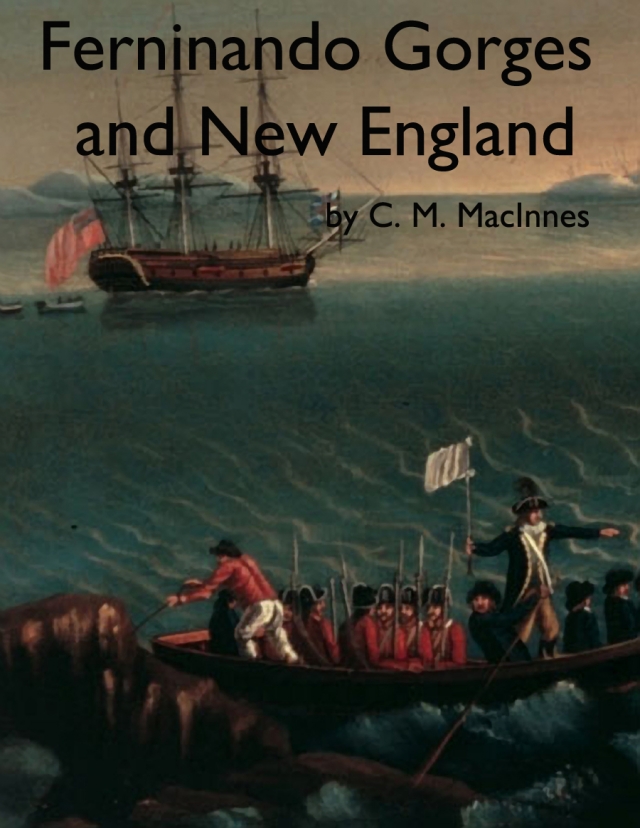Ferninando Gorges and New England
Classic Pamphlet

Sir Ferdinando Gorges (July 1565 - May 24, 1647), by some considered the "Father of English Colonization in North America", was an early English colonial entrepreneur and founder of the Province of Maine in 1622, although Gorges himself never set foot in the New World.
Sir Ferdinando Gorges was born at his family's town house in Clerkenwell, probably in 1565.One of his ancestors came over to England from Normandy with the Conqueror or shortly after-wards. During the middle Ages the Gorges were connected with some of the noblest families in England and in the sixteenth century they reached their zenith. Anne Boleyn and Catherine Howard, the two Queens of whom Henry VII beheaded, were second cousins of Edward Gorges, and Queen Elizabeth was thus a third cousin of his son, Ferdinando. The tomb of his ancestor who married Lady Anne Howard is in Wraxall Church.
He was bought up at one of the family seats of his widely ramifying family seats of his widely ramifying family. Wraxall Court and Nailsea Court near Bristol have both been mentioned; certainly, it seems clear that as a boy he lived on the neighbourhood of Bristol. Of his education little or nothing is known, except that it is said to have been a sound one. There is a tradition that like his brother he went up to Oxford, but for some reason unknown he did not take his degree. Judging by his later life the principles of Protestantism were firmly planted in him. On his father's death he inherited a £100, a gold chain and the manor of Birdcombe, Nr. Wraxall, with its lands scattered through the parishes of Wraxall, Nailsea, Tickenham and Portishead. The manor house, a fine four-storey porchtower mansion, some parts of which date back to the thirteenth century, still stands.
Gorges drew up in that stirring period of English History before the Armada when hatred of Spain was mounting. He was a boy of 15 when Drake returned in 1580 from his successful circumnavigation of the world with a cargo of Spanish loot. Gorges must have been well acquainted with the daring projects of his kinsmen, Sir Walter Raleigh and Sir Humphrey Gilbert, to plant colonies in the New World. As the Spanish menace grew, his zeal for the Protestant cause was stimulated. All of these things, together with his unpromising prospects as a younger son, impelled him to adopt the profession of arms at the age of 19. He therefore joined his countrymen in Holland who were at that time aiding their fellow Protestants in their desperate struggle with Spain. When the Armada came he was still on foreign service...
This resource is FREE for HA Members.
Non HA Members can get instant access for £3.49

